If you’re a vocalist/topliner looking for a collaboration, then the Us3 and YLD producer has some top tips for you
Pioneering producer Geoff Wilkinson is best known as the creative force behind the jazz/hip hop fusion band Us3, who achieved great success with their 1992 single Cantaloop (a Top 10 hit in the US) and its platinum-selling parent album Hand On The Torch.
He now returns with the debut album of new outfit YLD – a polished adventure in R&B which features vocal performances from Kelly Agbowu, Liisi LaFontaine, Liz Jai, Robin May and Courtney Bennett, continuing his history of collaboration which has previously seen him work with the likes of Shabaam Sahdeeq, Alsion Crokett, Akala and many others.
It’s this experience of working with and encouraging up-and-coming artists which dominated our recent chat, in the hope that it might inspire other budding vocalists and topliners to give it a go…
Are there things that can be done in advance of working with someone in order to maximise the chances of a successful collaboration?
“As a producer/songwriter working with vocalists who are writing their own toplines, I think trust is really important. If there’s a desire to work together that’s probably already there to some degree. When I was working with rappers in Us3, I would often hang out with them beforehand, and all the way through the recording process – go to the pub, have a bite to eat, talk to them, find out what makes them tick. Often in that situation, I was trying to get them to rap on things they probably wouldn’t normally do, i.e. bossa nova rhythms, different time signatures, spoken word tracks, jazz drum breaks, etc.
“Producing someone is a bit like getting someone comfortable inside a box, once you have their trust you can start subtly moving the walls of the box a bit wider, and then the experimentation starts. Working on the YLD album was a bit different for me, in that I think I also had to trust the vocalists equally. Most of the time with Us3 the backing tracks were pretty fixed by the time I gave them to the rappers. With the singers on YLD I was probably a bit more flexible, and certainly did more production work on the tracks after the vocals were recorded. Trust, flexibility and a willingness to experiment are all equally important I think.”
Particularly with regards to up-and-coming singers, what are you looking for at the start of the working relationship?
“I’ve often been asked what am I looking for when searching for vocal collaborators, and the honest answer is I don’t know! I often get a physical reaction to music, when the hairs on my arms stand on end. I’m really looking for that little bit of magic. I think all the singers on the YLD album have soul and passion, yet they all sound different. Individuality is hugely important to me, I’m not looking for someone who sounds like someone else, I want vocalists who have their own style. It’s always a risk when you bring someone in the studio for the first time, but it can also be tremendously exciting when things click.”
What are you hoping that a collaborator brings to the table?
“Their own individuality. I’ve never asked for someone to sound like someone else, whether that’s a singer, a rapper, or a musician. If I’ve brought someone into my studio, it’s because I’ve heard something in them that I want to catch and work with. If I can bring out their personality with sensitive production around them, that will help develop the trust I spoke about earlier and foster an increasingly creative atmosphere to work in.
“In a situation like mine, where I am both the artist and the producer, a vocalist (or musician) may feel a bit intimidated and try to give me what they think I want. That’s never good! I may put vocalists in a musical setting they may not be used to, but that’s really what my collaborations are about. I’m not interested in making a ‘pure’ form of music, I’m interested in making something that feels like it’s living and breathing. I just want them to be themselves inside my framework.”
Similarly, what should a singer hope for from a producer at the start of the partnership?
“I think that would differ as to whether the singer is a featured guest vocalist on someone else’s project, or if it’s for the singer’s own project. Two vastly different things. I once asked the A&R guy that signed Us3 what he was looking for when signing an artist. He said he would always sign someone who had a clear vision of what they wanted to do, someone who had a definite direction. They didn’t have to be the best singer/rapper/musician because if they had the vision, it would always be possible to put them together with other vocalists, musicians, or producers to enable that vision to come true.
“He could have been talking about me! I wasn’t a master of anything at that time but had a very clear vision of fusing hip hop and jazz in ways that hadn’t been done before. Looking back now, we hung out a lot together then, and I can see now that he was trying to get inside my head and find out what made me tick. He must have trusted me because I brought in every single rapper and every musician who collaborated on every Us3 album.
“If a vocalist is collaborating on someone else’s album they should be flexible in terms of experimentation, because the ultimate artistic vision may not be entirely theirs. If, on the other hand, it’s for the singer’s own album, they should look for a sympathetic producer that will enable their own artistic vision to come true.”
How do you tend to find the artists you work with – what can someone do to maximise their chances of being chosen by you for your next project?
“It tends to be either online or through word of mouth. I’ve found that vocalists are often the best source of finding other vocalists! I don’t think there’s anything specific that anyone could do to make them more attractive to me other than just being themselves.”
Is there one piece of advice that you’ve given out which can be applied universally?
“I have repeated the above story about how important it is to have a clear direction to several vocalists, but it’s obviously up to them to find their own direction. When looking for vocalists for the YLD album I did find a great vocalist I wanted to feature, but she had released an EP of tracks that were stylistically completely different, i.e. one soul track, one reggae track, one folky track, etc. Yet her social media sites were full of her singing covers of contemporary R&B songs. I thought that would be really confusing to her audience, and recounted the story about having a clear direction. Unfortunately, she took this as negative criticism (when it was clearly meant as positive criticism), consequently, she’s not on the album! I guess my second piece of advice then, would be to grow a thick skin, because every artist gets criticised.”
Are there examples from YLD Is Wild of an ideal working relationship?
“From the first day that Kelly Agbowu came into the studio something just clicked. I don’t know exactly how or why but I think we both recognised it straight away. The first track we recorded was Crush On You, which I love, and then a track called Fighting, which is so powerful we ultimately decided to keep that back for her solo album, which we are currently working on.
“I think we were just on the same wavelength. She was a bit nervous about initially showing me what she had written for Fighting because the lyrics are very political. What she didn’t know is that I used to be a very political animal, and worked for CND and the Anti-Apartheid Movement a long time ago. That strengthened the trust I talked about earlier, and that has grown as we have worked more together.”
Conversely, have there been times when a collaboration hasn’t worked?
“It wasn’t my intention to only have female singers on the YLD album, there was a couple of male singers I really wanted to use. They were both open to doing it, but then life got in the way! One of them had a solo release and things started to happen for him, so he dropped out to pursue his own path, which is totally cool. The other, unfortunately, had a death in the family and had to leave the country for a while, so the opportunity was lost. I’m gonna try and get them on YLD 2.
“With Us3 I always brought the rappers in from the USA to record in London. As that was expensive, the contracts were negotiated upfront. It was a contractual obligation for them to actively promote the album by touring with the live band for 12 months from the release -not exactly a hardship bearing in mind they would be paid to travel & perform all over the world. At different times, two rappers (one female, one male) let it slip whilst recording that they were only going to record and not go on tour, despite signing the contract. They both got put on planes back from London to NY the next day. It was idiotic of them to think they could do that and get away with it. It also made them look like fools to a major label, their lawyers, and probably their friends too.
“Advice: don’t commit yourself to something you have no intention of seeing through as it may have unintended consequences for your career.”
In terms of gaining exposure, do you think these type of collaborations can have significant advantages for up-and-coming artists?
“In a very crowded market place, exposure is everything. As a vocalist, you get a chance to put something out without being tied down to a long contract. What’s not to like? I’m surprised more British vocalists don’t do more collaborations. Look at American vocalists in R&B and hip hop, everyone collaborates on each other’s tracks, it’s a great way of putting yourself out there.
“On the YLD album you will see a featured vocalist credited called Robin May, but you won’t find Robin May on the internet anywhere. Why? Because it’s a pseudonym that the real featured up-and-coming vocalist suddenly insisted on using at the last minute, ‘So it wouldn’t conflict with her solo material.’ (!!). I think that was a very naive thing to do by her, she now has nothing to gain if those tracks do well. I did think about taking the tracks off the album, but she has a great voice and the tracks are really strong – which is even more baffling as to why she didn’t want to put her name to them. I don’t know who advised her to do that, but I don’t think it was anyone with any experience of the music business. My gain, but definitely her loss.”
Are there any disadvantages – for example, potentially losing your identity as a singer/artist?
“Maybe that’s what she thought? In my arguments against her stance, I put forward the example of Rita Ora, who first came to prominence guesting on the drum & bass track Hot Right Now by DJ Fresh. Is there anyone on the planet who would describe Rita Ora as a drum & bass artist? Of course not. She didn’t lose her identity, she gained a huge audience.
“I think if the project you’re featuring on isn’t stylistically a million miles from your own work it’s hard to see the downside. Feature spots can be a great way of gaining experience across the board, from working in the studio to making videos to performing live. And you won’t be tied
down contractually.”
Can you give any advice to any singers reading this that are going into their first collaborations and might be a novice in the studio environment?
“Just do it! Be professional, be flexible, be willing to learn. But most of all just be yourself. If a producer or songwriter has asked you to collaborate with them, it’s because they think you’re good and that you will improve their tracks. Make the most of it, because you’re effectively putting yourself in the shop window.”

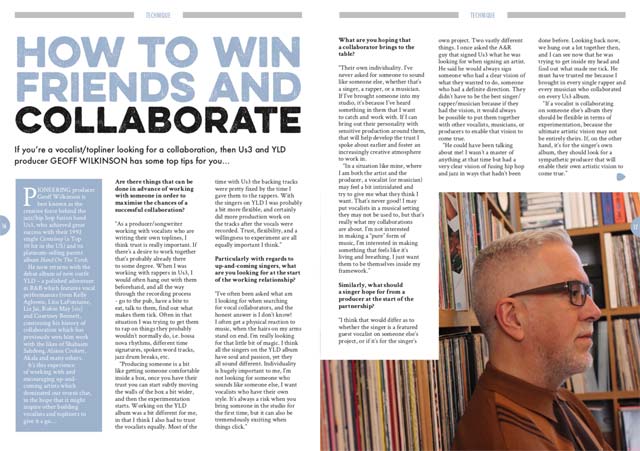

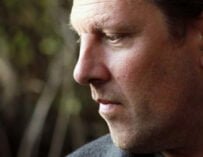


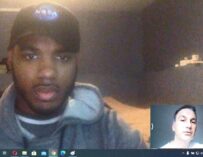
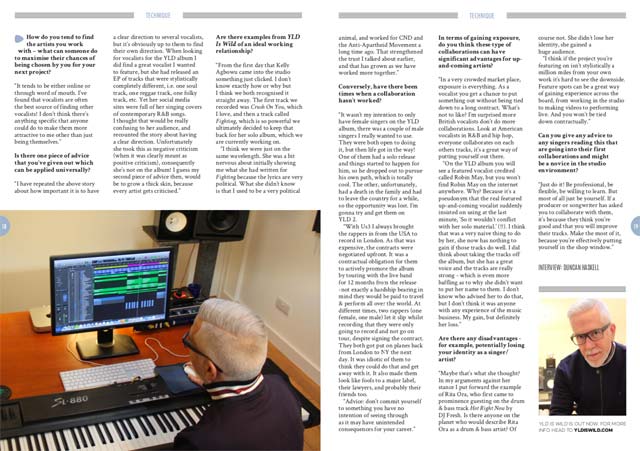
![Interview: Jessie Jo Dillon [2025]](https://www.songwritingmagazine.co.uk/wp-content/uploads/jessie-jo-dillon-2-by-libby-danforth-335x256.jpg)
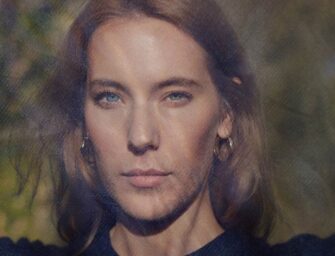
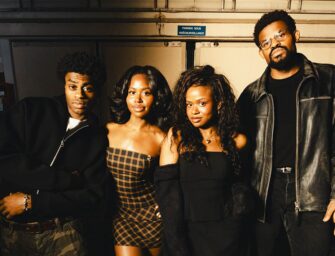
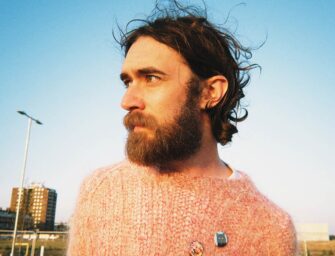






















Related Articles